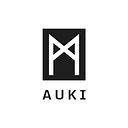
A thousand years ago there was a poem so ancient that it survived into at least three languages. Its contents may seem almost mundane, from our modern vantage point and consciousness, but it was most likely a sacred and important part of life for generations reaching back into the early fog of history. The poem recites the runic “Futhark” alphabet for memorization in a style that could almost be explained as “A is for apple…”
What’s different, of course, is that the runic alphabet was also pictographic, and that writing was costly — carving runes into stones is a time-consuming endeavour, and not something done lightly. Each rune represented a powerful concept, and by invoking them in the right way and order one could bestow blessings or curses on oneself and others.

And so, the poem deviates from the “A is for apple” schema, and becomes a recitation of concepts and words of wisdom related to them. In effect, the poem becomes a means of memetic transfer and an important crutch for a largely oral tradition. Learning to recite the poem didn’t only teach you to read and write, but it made you wiser.
How useful the poem must have been, then, to survive from a proto-Germanic root into versions we can still find today: the old Norse, Icelandic and Anglo-Saxon rune poems! Although we can’t be absolutely certain, the idea that this poem was carried in some form through oral tradition over centuries, or even millennia, is very compelling.
The first character of the runic alphabet is ᚠ Fehu, or Fe, representing wealth and cattle, and the first line of the Norse rune poem reads:
ᚠ Fé vældr frænda róge
Translated into English the line reads “Wealth brings discord among kinsmen”. What a peculiar, and powerful, foundational piece of wisdom. If you remember nothing else, children, remember this. The poem continues explaining that wolves are born in the forest, and that dross comes from bad iron — and that man is an augmentation of dust, something more than just matter:
ᛉ Maðr er moldar auki
At this point, you might be asking yourself why an augmented reality company is bothering to tell you about a thousand year old poem. That we have derived our name from this poem is already obvious, but the inspiration runs deeper than that.
Fundamentally, we believe that language is the oldest technology that could (and should) meaningfully be labeled as “augmented reality”. Our languages have evolved from our deep human desire to annotate the world with meaning and context so that we can arrive at intersubjective experiences and understanding.
We believe that the human impulse to name and label things and to see them in new contexts, the shamanic impulse, is one of the most important aspects of human life.
The stories we tell each other, the language we use to describe the world around us, the myths that help us understand our surroundings and our place — all of these memes come together to form our conscious thought. Humanity is an augmentation of dust. We are more than our genes. Our minds, our personalities — our very human essence, is our memes. As Wittgenstein once said:
“The limits of my language are the limits of my world.”
Augmented reality is poised to swing the doors of perception and communication open, and to reveal new vistas, new understandings, and new modes of human interconnectedness. At Auki Labs, we approach this monumental technological shift with reverence and a sense of responsibility. We recognize that building this technology requires being mindful of our impact on the human mind and that we must work together to avoid dystopian outcomes of alienation, disconnectedness and corporate surveillance.
Fé vældr frænda róge. The metaverse cannot belong to one company. Our minds are not theirs to monetize.
We wish to pay homage to the storytellers, the sages, and the shamans whose transformative narratives guide our creative energy. Stories that inspire us, align our intent, focus our competence, and conjure and create all the castles of the imagination.
Auki Labs is a on mission to help every device and person find their place in the world, literally, so that the next generation of world-shaping stories and experiences can unfold.
Auki Labs is about augmenting the human experience.
— Nils Pihl, CEO of Auki Labs
About Auki Labs
Auki Labs is at the forefront of spatial computing, pioneering the convergence of the digital and physical to give people and their devices a shared understanding of space for seamless collaboration.
With a focus on user-centric design and privacy, Auki Labs empowers industries and individuals to embrace the transformative potential of spatial computing, enhancing productivity, engagement, and human connection.
Auki Labs is building the posemesh, a decentralized spatial computing protocol for AR, the metaverse, and smart cities.
About The Posemesh Foundation
The posemesh is an open-source protocol that powers a decentralized, blockchain-based spatial computing network.
The posemesh is designed for a future where spatial computing is both collaborative and privacy-preserving. It limits the surveillance capabilities of any organization and encourages sovereign ownership of private space maps.
The decentralization also offers a competitive advantage, especially in shared AR sessions where low latency is crucial. The posemesh is the next step in the decentralization movement, responding to the growing power of big tech.
The Posemesh Foundation has tasked Auki Labs with developing the software infrastructure of the posemesh.
Twitter | Discord | Medium | Updates | YouTube | Telegram | Posemesh.org
